Publications
Articles, publications, books, tools and multimedia features from the U.S. Institute of Peace provide the latest news, analysis, research findings, practitioner guides and reports, all related to the conflict zones and issues that are at the center of the Institute’s work to prevent and reduce violent conflict.
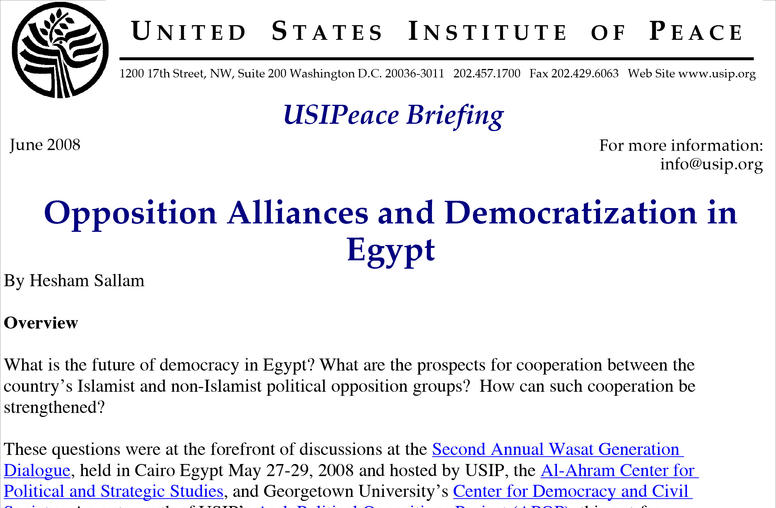
Opposition Alliances and Democratization in Egypt
What is the future of democracy in Egypt? What are the prospects for cooperation between the country’s Islamist and non-Islamist political opposition groups? These questions were recently explored at a USIP co-hosted conference in Cairo.
Bringing Peace to the Niger Delta
The conflict in the Niger Delta has posed a fundamental challenge to the country's security for over a decade. What is the nature of the conflict? What steps can the government and international community take to restore peace to the region?
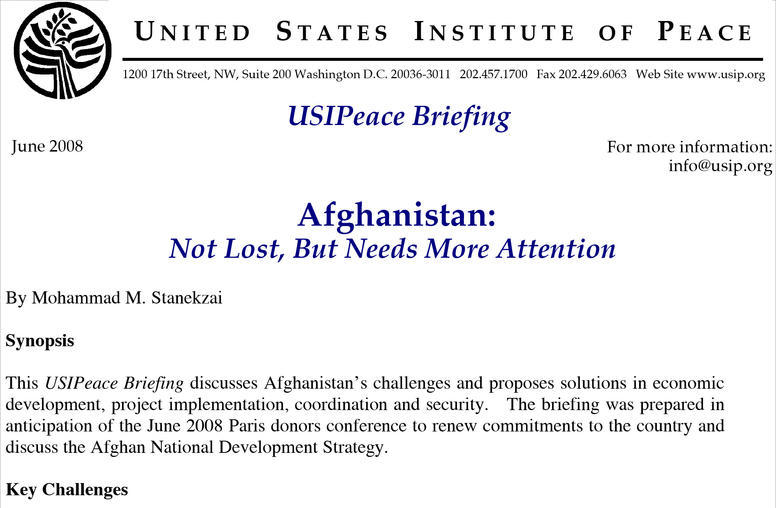
Afghanistan: Not Lost, But Needs More Attention
In this report prepared in anticipation of the June 2008 Afghanistan donor conference, Afghanistan Senior Fellow Mohammad M. Stanekzai analyzes the country's challenges and offers policies to aid economic development, project implementation, coordination and security.
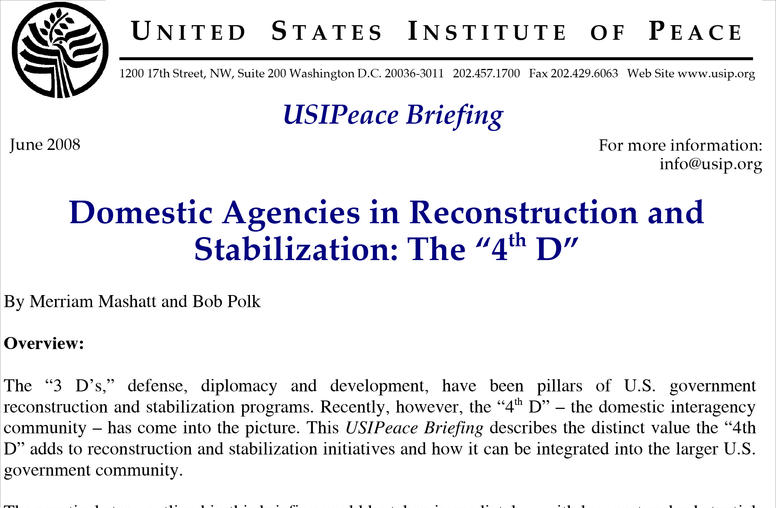
Domestic Agencies in Reconstruction and Stabilization: The "4th D"
Defense, diplomacy and development have been pillars of U.S. government reconstruction and stabilization programs. Recently, however, the "4th D"—the domestic interagency community—has come into the picture.
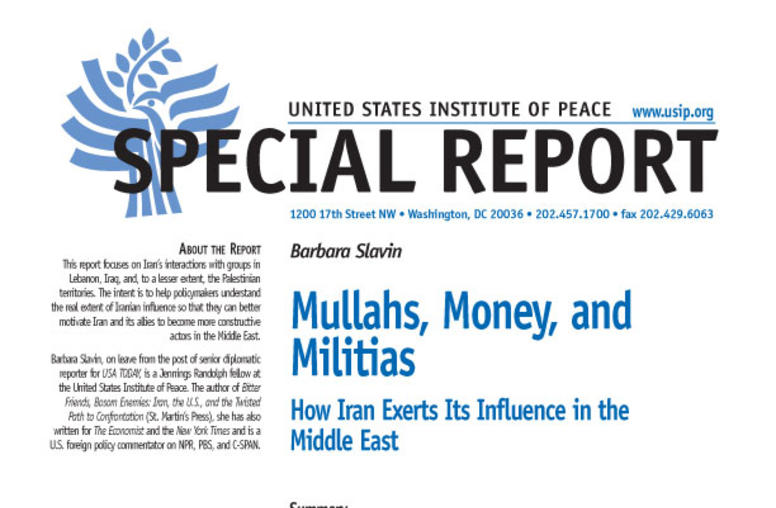
Mullahs, Money, and Militias: How Iran Exerts Its Influence in the Middle East
This report focuses on Iran's interactions with groups in Lebanon, Iraq, and to a lesser extent, the Palestinian territories. The intent is to help policymakers understand the real extent of Iranian influence so that they can better motivate Iran and its allies to become more constructive actors in the Middle East.
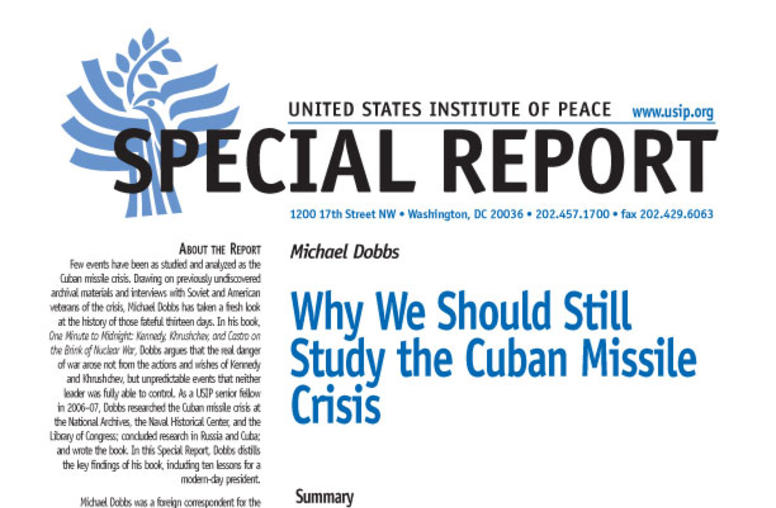
Why We Should Still Study the Cuban Missile Crisis
Few events have been as studied and analyzed as the Cuban missile crisis. Drawing on previously undiscovered archival materials and interviews with Soviet and American veterans of the crisis, Michael Dobbs has taken a fresh look at the history of those fateful thirteen days.
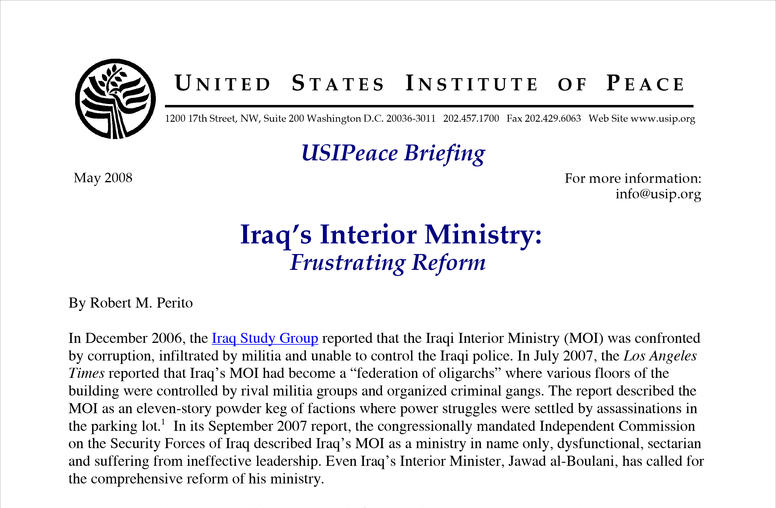
Iraq’s Interior Ministry: Frustrating Reform
Iraq's Ministry of Interior has been fraught with rivalries since 2003. How can it address these challenges?
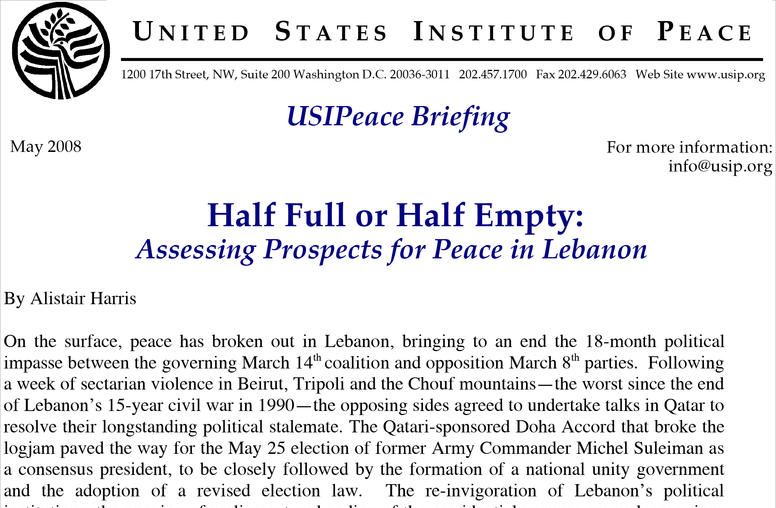
Half Full or Half Empty: Assessing Prospects for Peace in Lebanon
On the surface, peace has broken out in Lebanon, bringing to an end the 18-month political impasse. However, many questions remain. Alistair Harris, a Beirut-based expert on security and reform, explores these issues.
2007–2008 Winning Essay - National First Place Winner
National First Place Winner Callie E. Smith Girls Preparatory School Chattanooga, Tennessee Coordinator: Kathleen H. Berotti Water is a form of life. Without it, survival would be impossible. So how would the world react if this vital resource were depleted? Currently, 97.5 percent of the Earth’s water is marine with only 2.5 percent left as fresh water, 70 percent of which is locked in ice, soils, and underground aquifers. Less than 1 percent of fresh water thus remains for more than si...
2007–2008 Winning Essay - National Second Place Winner
National Second Place Winner Kensey Berry Pulaski Academy Little Rock, Arkansas Coordinators: Bill Topich, Ginger Kidd Colonialism and disrupted transition into the capitalist-driven world are often cited as the most significant commonalities among international conflicts. The causal chain must be traced back further, however, in an attempt to divulge the true root of these conflicts: natural resources.1 During the age of colonialism, when global powers in search of infinite treasures vi...